New year, new you
The new year always seems to bring with it some promise. It’s like a mini-fresh start. Many people come up with New Year’s resolutions. Almost all of those fail in some way, shape, or form.
So I want to talk about something other than resolutions. I want to talk about disciplines/routines you build into your life.
Here are three disciplines/routines that, if you implement them, will improve your financial situation and your quality of life.
Plan
Imagine getting on a big boat headed out to sea. You’re hoping to go to a tropical island.
You’ve got food and water to keep you fed and healthy on that boat. You have your family with you and some entertainment.
At first, it might be exciting. Will you end up in the Bahamas or Turks and Caicos? Or Fiji or the Maldives?
The longer you’re on the water, you begin to wonder how long the trip will be. Do you have enough food and water to last the journey? What happens if the boat needs repairs?

As you approach land, you don’t see any other people on shore. It looks desolate.
What started as an adventure with hopes of ending up on a tropical island was a long trip to a place you never wanted to go.
Now imagine the same scenario. This time you know you want to go to Barbados.
As you set out, you have a clear direction. Having a plan doesn’t mean everything will go smoothly.
You could run into bad weather, the currents could change, or your boat could need repairs.
In all of these scenarios, knowing your final destination will help you make the adjustments needed to get there.
The same is true for your financial future. If you don’t have a plan, you hope it will work out. If you look at statistics, it doesn’t work for most.
More people end up on the metaphoric desolate island than the tropical paradise they’d hoped for.
Action Steps:
Hire someone to be your metaphoric captain and guide you to your destination.
If you don’t want to do step one, take some time to think of some goals you have.
The goals don’t have to be huge or long-term but must be defined.
Some examples might be paying for your kids’ college education, buying a vacation home, taking your family to Disney or another destination, etc.
Once you have some goals laid out, figure out what it will take to accomplish them.
For many, this is hard, and that is why many don’t plan in the first place. When they get to this part, sometimes their goals seem impossible, so they stop there.
If you want to take a trip, do your best to project what it will cost. Then figure out how much you need to save each month to fund that goal. The same goes for any other goal you have.
Prioritize your goals.
Part of planning is understanding that you may not be able to do everything you want to do. At least not based on the information you have today.
The great thing is, things change. Maybe paying for your kid’s education is important to you, but it isn’t something you can set aside money for right now. By the time your kid is old enough to go to college, they’ve earned a scholarship, you’ve gotten promoted twice, and you can afford to cover the difference from cash flow.
Do something
You may need to focus on realistic goals. Once you’ve prioritized, take action on the goals you can do something about.
How This Helps Quality of Life
We naturally want to be in control. When you have a plan, know the things you need to do, and you’ve done them, it helps you feel in control of your financial situation.
On top of that, once you have a plan, small bumps in the road are less likely to impact your daily life because you know you’re still heading in the right direction.
All in all, having a plan gives you peace of mind.
Save First
You’ve probably heard someone say “pay yourself first” at some point in your life. There’s a good chance you’ve heard it multiple times.
There’s also a good chance you’ve thought that it sounds like a great idea, but have never actually implemented that idea and if you did, it was because you have a 401(k) plan through your employer.
This concept is probably my favorite thing about 401(k) plans. It forces people to pay themselves first.
The sad truth is that over 50% of Americans are behind on saving for retirement and the median account balance for all Americans is $35,345.
For those 55-64 that number is $89,700. These numbers were startling to me. But why is it this way?
The main reason I think so many people feel behind and account balances are so low is that very few people actually choose to pay themselves first.
If I had to guess, most Americans pay their bills, spend on non-essential things, and then if there’s anything left over, put it into savings.
I understand some circumstances make saving a significant amount or any for that matter nearly impossible. Many times because of things outside of our control.
I would venture to say, most of the time though, the lack of margin in our budget is our own fault.
We bought too much house, bought that car we couldn’t afford, were irresponsible with our credit cards, or any number of things that cause us to spend too much money.
Sometimes it’s not easy to take a look in the mirror, but if we want to get better, we have to start with ourselves and what we can control.

Action Steps:
Refer to the plan we talked about above to figure out how much you need to be saving to achieve a goal you have.
Start small. Whether this is putting money into your 401(k) or setting up an auto draft into your savings account.
Commit to increasing your savings amount by at least 1% per year until you reach your desired savings rate.
Repeat this process at least once per year by reviewing your plan and making needed adjustments.
How This Helps Quality of Life
Prioritizing where your money is going every month gives you a sense of control that we referenced before.
An analogy that works is comparing this to working out. You and I both know all the benefits of eating healthy and exercising consistently. Knowing that though does not make us healthy.
It’s not until we actually start eating healthy and exercising consistently that we reap the benefits of it.
It might be painful at first. Some soreness and cravings for those unhealthy things, but if we stick with it, we know we’ll be better for it in the long run.
The same goes for saving first. It might be a little painful at first. Might not get to eat out as much or we might have to downsize our house in some cases.
In the long run though, it will be better. And the more you do it, just like working out, the easier it will be.
That’s the point where you’ve learned to live within your means. Then you get a raise, and you can bump your savings up first knowing you’re already living well inside your budget.
Spend Your Money Wisely
You’ve been told you should have a budget at some point. While having a budget is good, I also know most families won’t stick with it and stop trying.
This isn’t because they don’t want to. It’s just because most people in America have enough money to live the life they’re used to without needing to keep a close eye on their finances.
Couple that with the fact that people are busier now than ever, and it’s easy to see why keeping up with a budget isn’t at the top of anyone’s list of priorities.
When I say spend money wisely, I’m not specifically talking about keeping a budget. I’m talking about making wise decisions on where you spend your money.
One question I ask everyone I work with is, what do you enjoy spending money on? Pause for a moment and think about that. How would you answer that question?
You can probably guess some of the answers I hear most frequently. Travel, experiences with my spouse/kids, eating out, and insert hobby are a few.
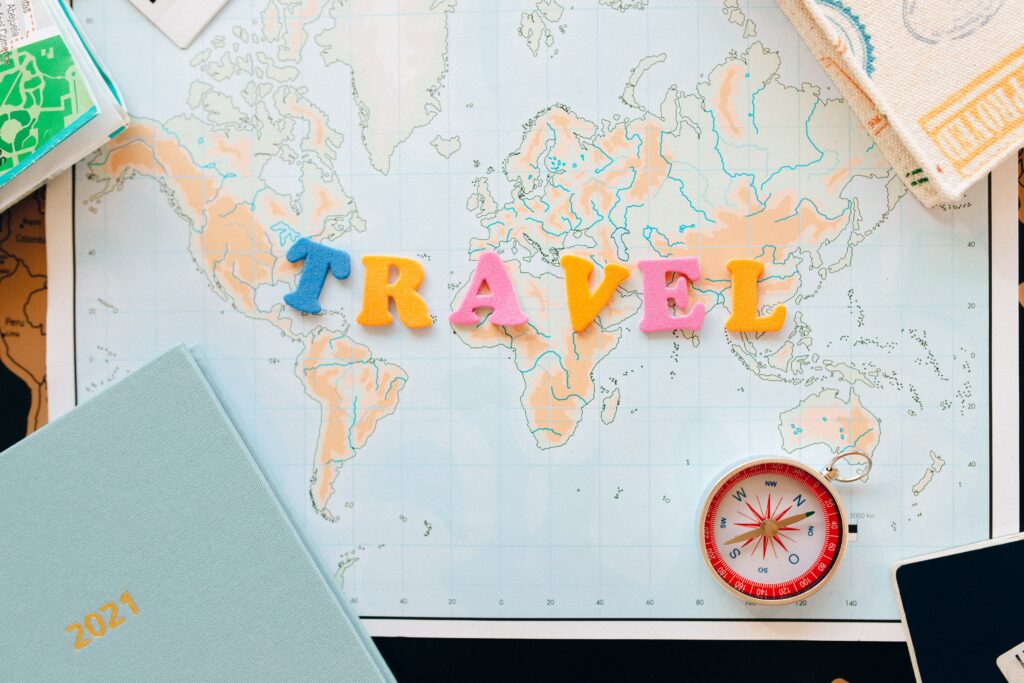
Now, what If I pulled your spending for the last year? Does it reflect that’s where most of your variable spending is going?
That’s the point I’m trying to get across. We all have fixed and necessary expenses like the mortgage, utilities, insurance, food, etc.
After that, though, what are you spending your money on? Are you spending it on things that bring you joy and fill your cup?
Or are you spending it impulsively on things you didn’t even know you wanted (social media ads)?
I’m not here to point any fingers or make anyone feel bad. My wife and I have been trying to be more aware of spending money on the things we love for the past several years, but I still have impulse buys and plenty of Amazon boxes at our front door.
The goal is to raise awareness and look to make adjustments.
Action Steps:
Take some time to think about what you enjoy spending money on. What fills your cup? Do this with your spouse too.
Next, audit your spending for the past 3-6 months. Figure out how much your discretionary spending is each month.
See how much you’re spending towards what fills you up and brings you joy. What percentage is going towards that versus misc spending?
Make a plan to be more intentional about where you’re spending your money.
Repeat steps 2-4 every 6 months or so.
How This Helps Quality of Life
This one seems the most self-explanatory. If you get to a place where you’re intentionally spending money on the things that bring you the most joy, you’re naturally going to be happier.
As you age, these things will change, but it’s always a good idea to keep an eye on how you’re spending your money and if it’s being spent wisely on the things that matter most.
Monthly Minute
Be on the lookout this quarter for more helpful planning information in our upcoming Monthly Minute releases.
Get to Know Our Team
This past quarter we all got to celebrate Halloween, Thanksgiving, and Christmas.
The Ray family celebrated Kyle’s birthday in November with a trip to Barnsley Gardens.
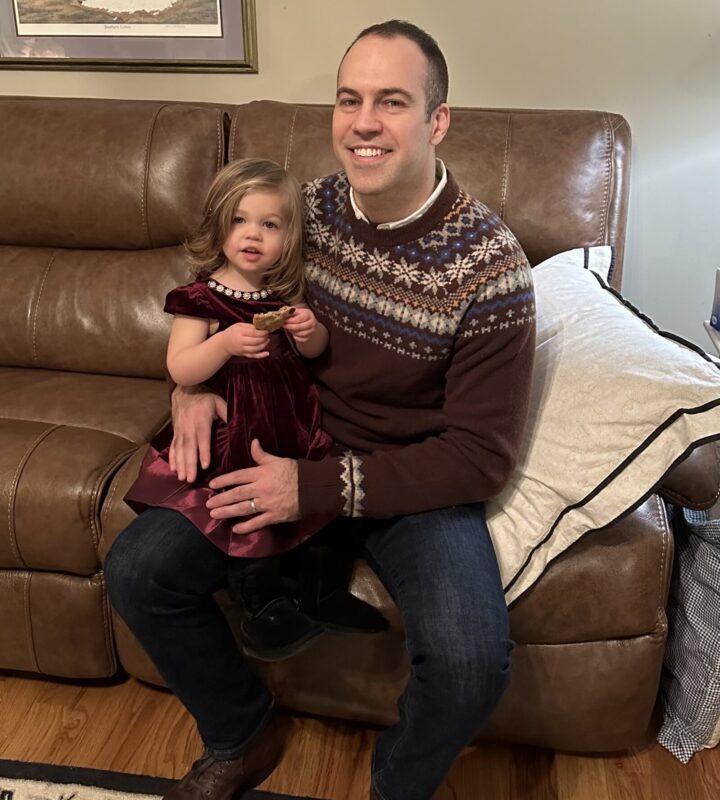
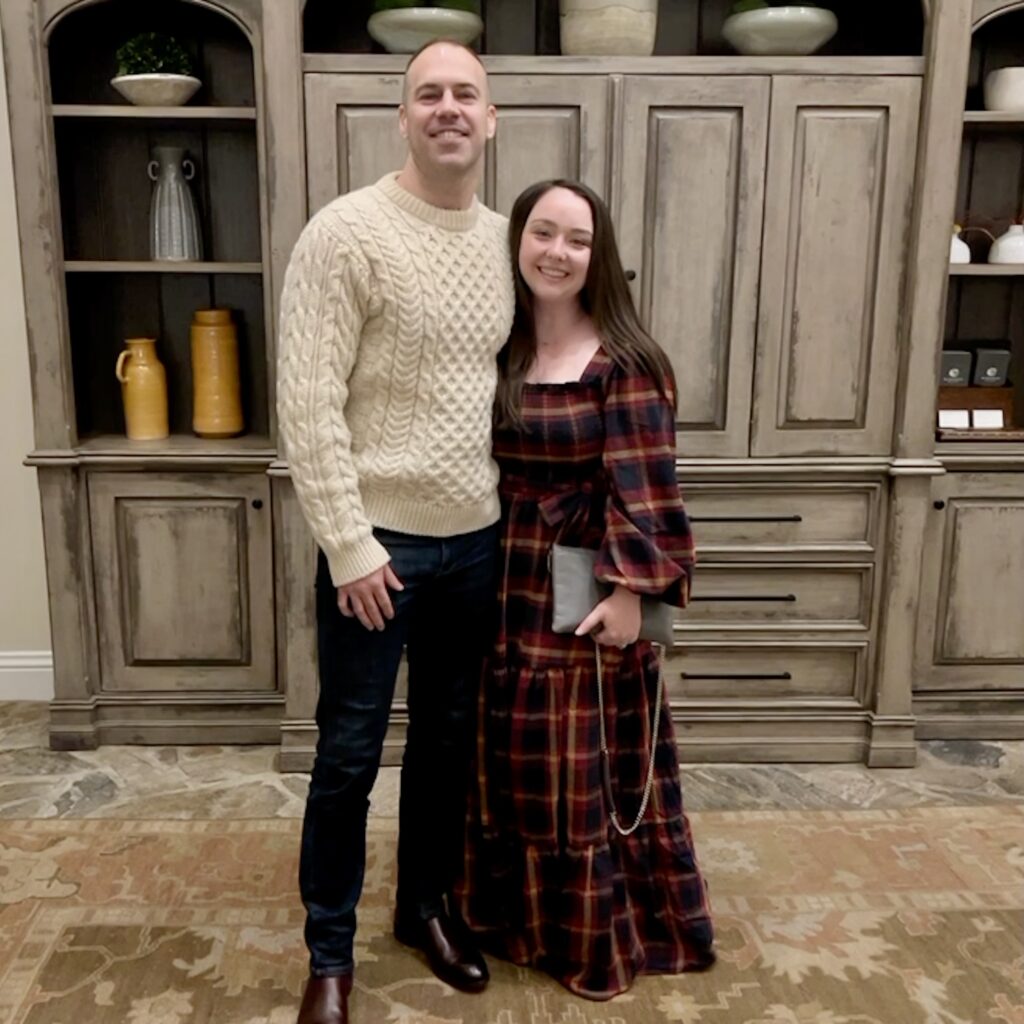
They also had some fun around Christmas time with their pup, Doc!
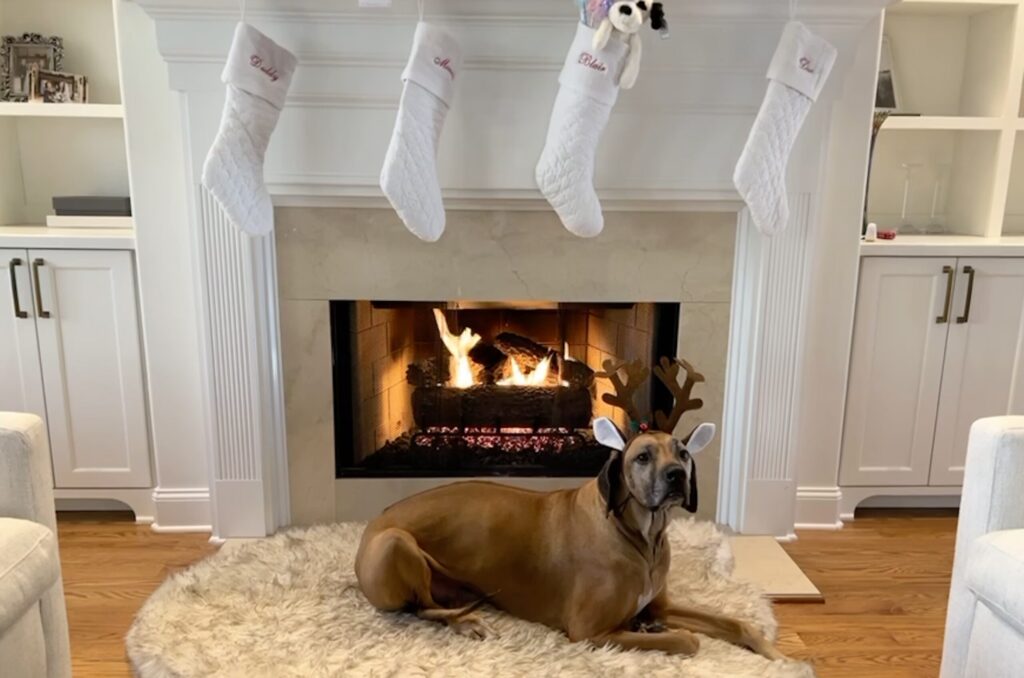
The Hyde family got to celebrate Charlotte’s birthday in December which coincided with her school’s Daddy/Daughter Dance. They also had a great Christmas.

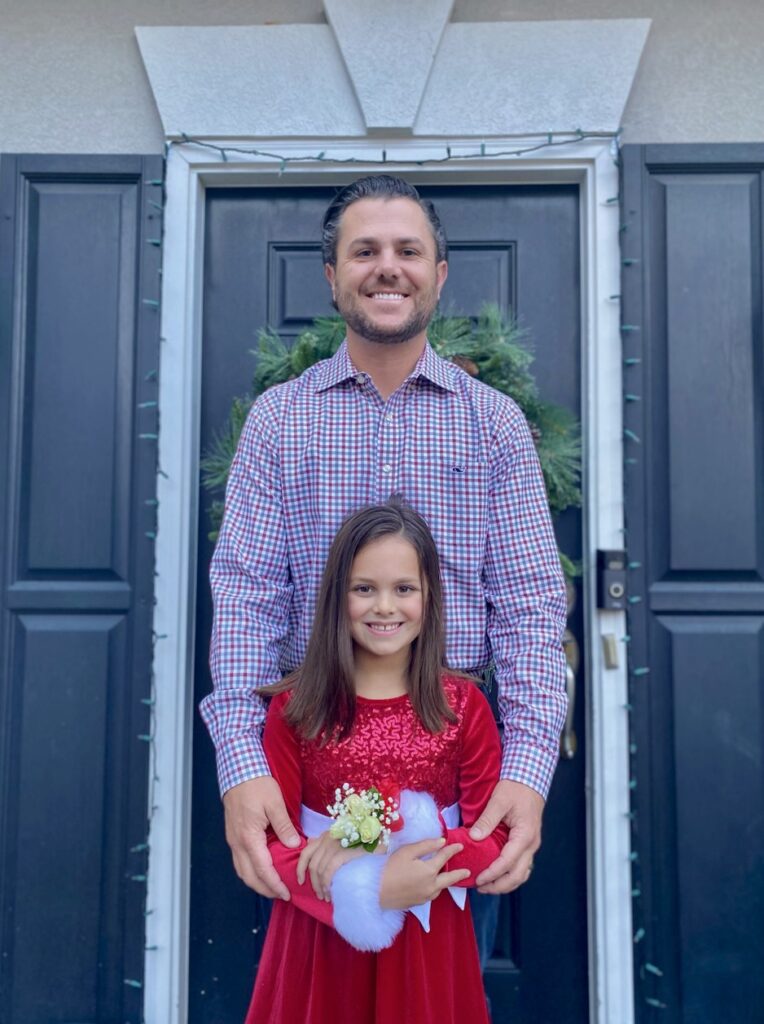
Coaching
Lee also got to coach both Charlotte and Noah again this Fall. Both teams made it to the championship game but lost close ones.


Baptism
Lastly, Lee got the honor to baptize one of the 3rd-grade kiddos in the small group he leads. This was such a special moment as he’s watched her grow through their group since she was in Kindergarten!
HOW TO STAY CONNECTED
If you like what you’ve read and would like to get more helpful advice in the future, click the link below to subscribe to our newsletter.
If what you read today has stirred up some questions and you’d like to discuss further. Click here to schedule a free introductory call with our team.
You can also check us out on our Facebook, Twitter, or LinkedIn.

